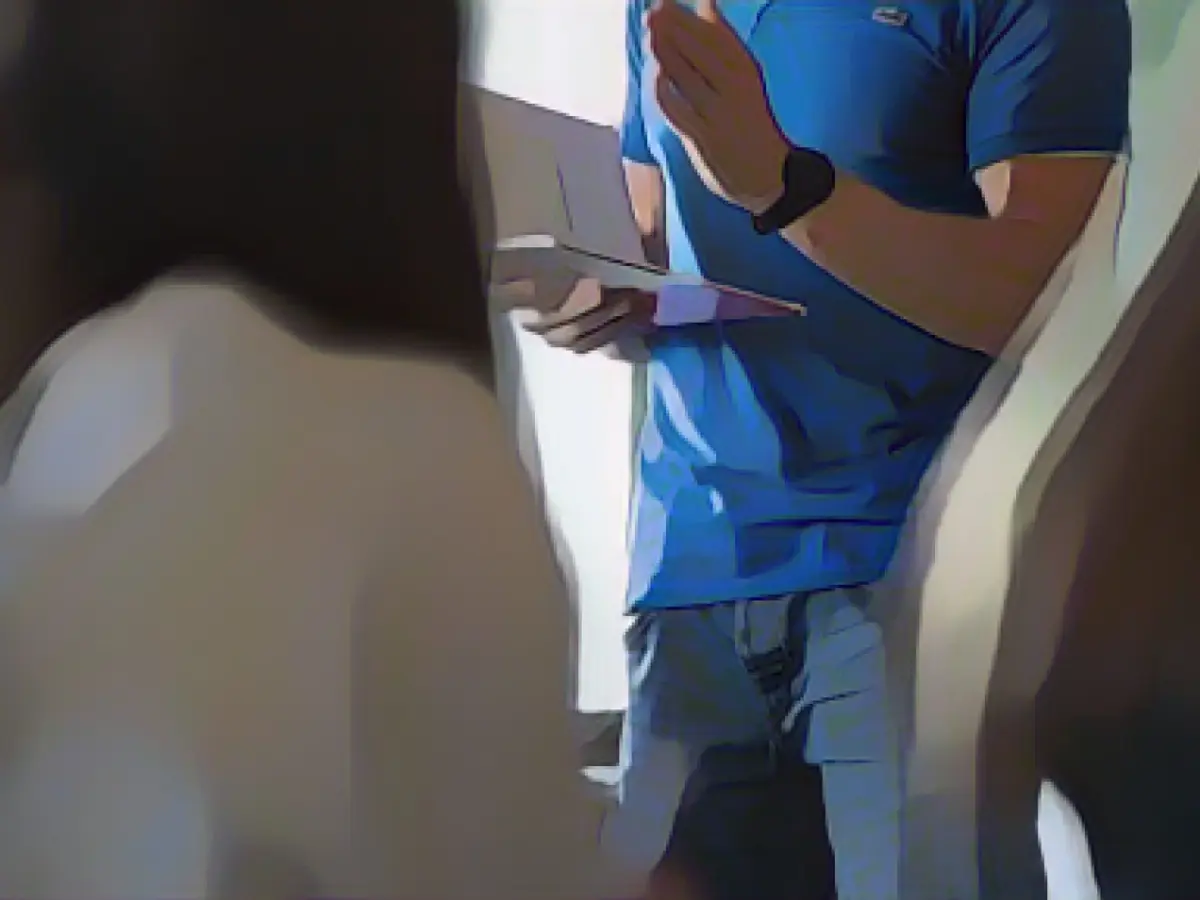Minister of Culture - Piwarz's comments on schools and migration spark debate
Saxony's Minister of Culture Christian Piwarz (CDU) believes that schools in the state are reaching their limits due to the high number of children and young people with foreign roots. Integration work in a class can only be achieved up to a proportion of around 30 percent of pupils with a migration background, he told the "Leipziger Volkszeitung" newspaper (Wednesday). "That's what all the experts say, and that's what our concept is based on. And if the proportion is higher - and it is significantly higher at quite a few schools in Saxony - it is precisely this integration effort on our part that is not successful."
Piwarz also attributed Germany's poor performance in the latest Pisa study to this. "We have noticed that the student body is becoming increasingly heterogeneous. Pupils entering first grade in Saxony show development and performance differences of more than two years. This shows that something is going wrong." The difference is also, but not only, due to migration. The number of pupils from other countries has tripled in less than ten years. "This has left its mark on the education system."
Saxony had already announced that some of the unaccompanied refugee minors would no longer be taught in regular classes in order to ease the burden on the school system. According to Piwarz, the concept is to be implemented from the 2024/2025 school year. It will hardly be possible to lead the young refugees to a degree in the two or three remaining years of their compulsory schooling. "Instead, we have to make sure that we teach them German first and foremost and ensure that they can start an apprenticeship."
Piwarz's words sparked a debate. The Education and Science Union (GEW) disagreed with the minister. The head of Saxony's GEW, Burkhard Naumann, saw the comments as an attempt to divert attention from home-grown problems. "Education Minister Piwarz is right that our education system is at its absolute limit. However, the problem did not suddenly arise due to immigration, but is the result of years of misguided education policy."
According to Naumann, dealing with heterogeneity is the main problem. "The educational success of young people still depends much more on their social background than on their own learning and performance abilities. This is why the integration of children from other countries, some of whom have had traumatic experiences, is so difficult. The main reasons are the overburdening of teachers and a lack of support systems.
Left-wing politician Luise Neuhaus-Wartenberg described Piwarz's comments as "grist to the mill of the extreme right". "This is not helpful in the fight for our democracy." Children with a history of flight are by no means responsible for the fact that the CDU-led governments have hired too few staff for years and blocked modern teaching concepts such as longer joint learning. There is an urgent need to relieve the burden on teachers by hiring more teaching assistants and making more investments.
Green Party education expert Christin Melcher emphasized: "Refugee children and young people are not to blame for the fact that the system is not working. I consider Minister Piwarz's statements to be extremely dangerous, at least in part." The problems in the school system are the responsibility of the CDU, which has been in charge of the education department in Saxony for decades. "After all, it was the CDU that turned away teachers at Saxony's borders for years and cut back on education." Education is a fundamental right that applies to everyone without exception, including refugees. "And education is the key to integration and social participation."
Read also:
- A clan member is punished here
- Traffic lawyer warns: Don't talk to the police!
- Will he be convicted as Jutta's murderer after 37 years?
- He also wanted to kill his cousin
- GEW's Burkhard Naumann, the head of Saxony's GEW, criticized Minister Piwarz's comments, viewing them as an attempt to shift blame away from local issues.
- According to Naumann, the main challenge in dealing with diversity is addressing the educational disparities that persist due to students' socioeconomic backgrounds.
- In turn, Naumann attributed the difficulty in integrating migrant children to the overburdening of teachers and the lack of support systems within the education system.
- Left-wing politician Luise Neuhaus-Wartenberg condemned Piwarz's comments as a means of bolstering extremist sentiments, arguing that refugees cannot be held accountable for the CDU's policy decisions.
- Christin Melcher, the Green Party's education expert, highlighted the responsibility of the CDU in addressing educational challenges in Saxony, given their control of the education department for decades.
- Melcher asserted that Minister Piwarz's comments were dangerous, as they perpetuate the notion that refugee children are responsible for the system's failures, and emphasized the importance of education as a fundamental right and a route to integration.
- Christian Piwarz, the Saxony Minister of Culture, claimed that schools are struggling to accommodate the high numbers of migrant children, arguing that successful integration can only occur with a maximum of 30% migrant students in a class.
Source: www.stern.de








